Rolls-Royce Vows to Become Electric Only by 2030
With the upper classes enjoying one of the largest wealth gaps in modern history, Rolls-Royce had a phenomenal sales year in 2021. Volume surpassed every other annum in its 117-year history, which might encourage one to assume that the business would be interested in maintaining the status quo. But that’s not to be the case, with CEO Torsten Müller-Ötvös having confirmed that Rolls-Royce is fully committed to abandoning internal combustion.
The automaker has said that its first series-production electric vehicle will arrive in 2023. However, it would like to have every gasoline-driven model in its lineup replaced by EVs by 2030 and the relevant strategies are already being put into action. From here onward, Rolls-Royce won’t be introducing any new combustion-reliant models.
Survey: Which EVs Are Leaving Drivers the Most Satisfied?
With electric vehicles getting a lot of press, you might be wondering which models are scratching consumers in all the right places.
According to J.D. Power’s U.S. Electric Vehicle Experience Ownership Study, the Kia Niro EV is the best thing the mainstream BEV market currently has to offer. The Korean model garnered a satisfaction rating of 744 points out of a possible 1,000. However, it wasn’t the top dog overall. That honor fell to the Tesla Model 3, which achieved a score of 777 points — besting the industry average for premium electrics by a whole seven points.
White House Invites Auto Execs to Endorse Build Back Better
The White House has made plans to host American business executives — including numerous CEOs tied to the automotive sector — in an effort to gain support for the stalled Build Back Better agenda. The meeting is scheduled to take place today, with President Joe Biden and company hoping to convince them to get behind the (revised) $1.75 trillion spending bill after it passed in the House but never made it through the Senate.
Seats have already been reserved for General Motors CEO Mary Barra, Ford CEO Jim Farley, and Cummins CEO Tom Linebarger. The rest are going to heads of manufacturing and technology companies, with a few noteworthy outliers. For example, the Biden administration has also invited the president of the Teachers Insurance and Annuity Association of America and the CEO of Siemens (a multinational entity that’s not based in the United States). Based on earlier statements from White House press secretary Jen Psaki, the meetings will take place in-person, bucking the Biden administration’s trend of hosting virtual events.
Are Electric or Combustion Cars Better at Weathering a Winter Storm?
Following the Virginia shutdown of Interstate 95 that left countless people stranded in freezing weather overnight earlier this month, there was a surprising amount of news coverage making offhand comments about how victims would have been better off if they all were driving electric vehicles (Ed. note — there was also this Washington Post op-ed in which the author worried that an EV would be a poor vehicle to be stranded in And this Vice rebuttal to that article). While it seemed an inopportune time to advertise for EVs, it’s an interesting premise and encouraged Car and Driver to conduct a head-to-head experiment between a Tesla Model 3 and Hyundai Sonata N-Line to see who could keep the cabin warm for the longest period of time when stranded.
Realistically, you’d be better off in whatever vehicle is yielding the heaviest fuel tank or least-depleted battery when traffic stops. But there are other factors to consider. Idling an internal-combustion car for extended periods of time is not recommended and doing so when totally snowed in could potentially trap harmful exhaust gasses if the exhaust is not kept clear. Meanwhile, EVs are notorious for having their battery chemistry altered by colder temperatures. This is especially true if they lack the relevant thermal management systems, resulting in the maximum range being diminished by as much as 30 percent.
Stellantis CEO Says Electrification Advanced by Politicians, Not the Industry
Despite Stellantis making formal announcements that it will be investing 30 billion euros ($34 billion USD) into its novel electrification strategy, CEO Carlos Tavares has been making it sound as if the automaker’s plan was crafted under duress. He’s been telling European media that the widespread adoption of EVs is primarily being pushed by politicians who are ignoring the environmental risks and logistical shortcomings.
“What is clear is that electrification is a technology chosen by politicians, not the industry,” he said told the press this week.
Winnebago Reveals Electric Camper Concept With 125-Mile Range
Winnebago has revealed the electric e-RV camper van concept at the Florida RV SuperShow and it looks to be right in the sweet spot for North Americans interested in partaking in van life. However, the motorhome manufacturer has said the model is only capable of driving 125 miles between charging, drastically limiting how much wiggle room is in the travel itinerary.
On the upside, the 86.0-kWh battery pack does run the cavalcade of appliances the e-RV comes without the same need for maintenance as the deep-cycle units that typically go into recreational vehicles. But that also means every time you run the modern conveniences it’s been equipped with you’re losing range.
Tesla Adding Track Mode to Model S Plaid
While it’s possible to catch a glimpse of a Tesla Model S staging at the local dragstrip, they don’t make many appearances at track days. EVs that weren’t designed specifically for racing circuits typically become undone after a few laps of sustained abuse, with Tesla’s first sedan being no different. Early examples of the Model S even failed to get around the Nürburgring when pushed to the limit, with touring car driver Robb Holland sharing videos of the model forcing itself into limp mode as components began overheating during a test run in 2014. Holland praised the car for its sublime road manners, though concluded it was ill-suited for serious racing.
Things are a little different today. Tesla now holds the fastest single lap of any EV to grace the Nordschleife and sells the Model 3 Performance with a dedicated track mode it plans on extending to Model S Plaid vehicles via an over-the-air (OTA) update. But can some fresh code and a little time really do what’s required to make the sedan a valid track vehicle when the preexisting hardware remains unchanged?
General Motors Says Heavy Duty Electric Pickups Are Coming
General Motors has made another proclamation at CES 2022, this time providing a timeline for electric variants of its heavy-duty pickups. HD EVs are scheduled for 2035, which just happens to be the same time it has promised to have phased out gasoline engines. Presumably, that means the hardest working of GM’s work vehicles will also be the very last models to go all-electric.
“As previously announced, our plan is to have all new light-duty vehicles be electric by 2035,” GM CEO Mary Barra said during her keynote address. “And today, I’m pleased to announce that we’ll introduce all-electric heavy-duty vehicles on that same timetable.”
Toyota Promises Solid-State Batteries By 2025
While electrification has felt like the only thing automakers are willing to talk about anymore, CES 2022 provided yet another opportunity to see which companies are willing to make the biggest promises when pitted against each other. This encouraged plenty of manufacturers to issue reminders of their existing EV timetables, though we’d be lying if we expected any company to adhere to them all that closely.
Then there’s Toyota. Despite being the largest automaker on the planet by volume, the Japanese company is famous for hedging its bets and not being all that secretive about it. When other manufacturers were vowing swift electrification at all costs, Toyota said they would need to continue producing hybrids if they were to realistically serve the public. But the business is still developing battery tech, with a vested interest in selling it off to rival manufacturers who are more willing to run with BEVs exclusively. It’s also been developing solid-state batteries, which it has confirmed are on track for delivery by 2025.
Toyota Nearing Federal EV Tax Credit Quota
Toyota Motor Corp. looks to be the next automaker that will have exhausted its allotment of EV tax credits for the U.S. market.
While the quota for $7,500 rebates has already been reached by Tesla and General Motors, Toyota is closing in with 190,000 plug-in sales of its own. The government has limited federally backed incentives to just 200,000 vehicles per manufacturer. Once the Japanese manufacturer reaches that limit, credits go into a cool-down period where it can continue benefiting from the full sum six months after the relevant quarter ends. From there, incentives will be halved for the next two quarters until the company is no longer eligible.
Chrysler Going Electric By 2028, Airflow EV Introduced
Stellantis has announced plans to shift the Chrysler brand to an all-electric lineup by 2028, presumably because it doesn’t know what else to do with it anymore. Though, considering the make’s long and storied history, the change almost seems fitting.
When the French bought up Fiat Chrysler Automobiles from the Italians in 2021, the namesake brand had already been losing steam under the Germans. But they were adopting the company after years of mismanagement from Americans, who had taken the marque from being arguably the most luxurious and technologically advanced the United States had to one that had to be saved from bankruptcy by government intervention on more than one occasion. Suffice it to say, Chrysler has enjoyed some of the sweetest highs and pathetic lows imaginable. But it always seems to rise from the ashes thanks to some innovative decision that ultimately helps redefine the industry — which is why Stellantis is leading its own EV offensive by reviving the Airflow name.
Nikola Delivers Electric Semi Trucks in California
Having recently posted an article highlighting some of Nikola’s bad behavior, it’s only fair that the company receives some acknowledgment for delivering on a promise. Last week, the company shipped the first examples of its Tre battery-electric trucks in California.
Two test vehicles were issued to Total Transportation Services Inc. (TTSI) to see how the Tre handles running deliveries in and out of Los Angeles and Long Beach ports. The trucking firm has a letter of intent from Nikola to purchase 100 trucks following a trial program of two Tre BEVs and their fuel-cell (FCEV) counterparts once the latter is in production.
Audi Reveals Ken Block's S1 E-tron Quattro 'Hoonitron'
Ken Block is a man of many talents, many of which have nothing to do with driving. But he’s still best known for showboating from behind the wheel in the highly entertaining and well-produced Gymkhana video series. Here, Kenneth and the Hoonigan team choose a visually engaging locale and creatively rips up the pavement in some of the coolest custom-built rally cars ever to grace the screen.
Due to Block’s partnership with Ford, the majority of those cars wore the Blue Oval. But he’s since entered into a new professional marriage with Audi where he’s supposed to help push the brand’s all-electric agenda. The unification has apparently yielded its first mechanical offspring, with the insane-looking Audi S1 e-tron Quattro Hoonitron having debuted on Wednesday. Predictably electric, the vehicle is heavily inspired by the Group B legend that shares the parts of the name that don’t utilize the word tron.
Toyota Announces EV Strategy, Readies $70 Billion for the Cause
On Tuesday, Toyota Motor Corp. announced a commitment of 8 trillion yen ($70 billion USD) toward the goal of achieving carbon neutrality someday. Though the concept of any multinational manufacturing entity totally nullifying their carbon footprint seems kind of laughable, so we’ll be referencing this as another electrification strategy — which is still a big deal considering how EV averse Toyota has been thus far.
Despite being an environmental trendsetter with the Prius Hybrid, Toyota has been hesitant to formally commit itself to transition its lineup toward being reliant on battery power. However, President Akio Toyoda has just proudly confirmed that the Japanese automaker would be earmarking the funds for exactly that purpose, noting that the brand (along with Lexus) would be spending the money through 2030 to make sure its global sales of battery electric vehicles (BEVs) reach 3.5 million vehicles annually. Though the most enjoyable aspect of the release was the direct manner it was presented, with Toyoda-san being impressively honest about modern automotive trends.
GM CEO Says Incentives May Help America Transition to EVs
General Motors CEO Mary Barra has chimed in on the weeklong open discussion about whether or not it’s a good idea for America to embrace the Biden administration’s EV tax credit plan, which just so happens to be deeply intertwined with the Build Back Better Act’s cavalcade of federal initiatives.
As we’ve already covered the topic more than once, we’ll avoid the recap and simply post the relevant links where Tesla CEO Elon Musk recommended pitching the entire bill into the trash and Transportation Secretary Pete Buttigieg went to bat for the White House by suggesting the updated tax scheme was a necessity for electrification to thrive. Barra opted to go with the latter take, stating that it could help accelerate EV adoption.
Biden Executive Order to End Gasoline Powered Vehicle Purchases
On Wednesday, President Joe Biden signed an executive order committing the United States to the acquisition of only zero-emission vehicles by 2035 for the federal vehicle fleet.
This is totally in line with the administration’s stated desire to focus on transitioning the nation toward renewable energy sources while advancing electric vehicle adoption rates. But the event was curiously not celebrated with the applicable fanfare. Biden signed the document without media there to capture the moment and reporters failed to ask about it during a press event on the White House lawn later in the day. Were it not for an official fact sheet issued by the administration later in the day, we may never have known there even was a signing.
Buttigieg Issues Rebuttal to Elon Musk Regarding EV Subsidies
U.S. Transportation Secretary Pete Buttigieg has responded to criticisms Elon Musk has made about the Biden administration’s plan for electric vehicle subsidies.
The Tesla CEO believes the Obama-era EV tax credits were more than sufficient, with his own company serving as physical proof, and suggested the entire Build Back Better Act be tossed into the toilet. But Secretary Buttigieg said it was a necessary item if the United States hoped to advance electrification, swiftly transition away from combustion vehicles, and escape the perils of climate change (formerly known as global warming).
Elon Musk Continues Insulting Biden Admin's EV Tax Credit Scheme
Elon Musk has continued bashing the Biden administration’s tax credit legislation designed to spur electric vehicle adoption, this time suggesting that the entire bill be scrapped. Included as part of the Build Back Better Act that’s focused on addressing various social, infrastructure, and climate issues, Musk suggested the entire text simply be done away.
“Honestly, I would just can this whole bill,” he stated at The Wall Street Journal’s CEO Council Summit, appearing remotely from Tesla’s construction site in Austin, Texas.
Securities and Exchange Commission Checking in on Lucid Motors
Lucid Group Inc. has been subpoenaed by the U.S. Securities and Exchange Commission (SEC) which is on the prowl for any documentation relating to its merging with a special purpose acquisition company (SPAC). Known colloquially as “blank-check firms,” these organizations literally exist to be combined with existing companies as a way to pump the stock and spur investments.
But they’ve gotten a lot of negative attention following a glut of EV startups garnering impressively high valuations based on little more than a business proposal. Those seeking an example need look no further than Nikola Corp, which was outed as having grossly overpromised on its technological capabilities and production acumen after raking it in on the stock market. As a result, financial regulators have become increasingly skeptical of SPACs and want to make sure everything going on with Lucid is above board.
Stellantis CEO Thinks EVs Are Too Troublesome
Stellantis CEO Carlos Tavares has said that the growing pressures being placed on automakers to shift toward electric-vehicle production are unsustainable and run the risk of the public getting subpar products at decidedly higher price tags. While we’ve seen automotive executives lambast new energy vehicles before, it’s grown rarer as governments around the world have continued incentivizing their existence and investors have been pouring money on startups delivering literally nothing more than the mere suggestion of more electrification.
Tavares’s words come from the Reuters Next conference, running counter to the event’s prevailing narrative of encouraging technological progress and social change. Attendees tend to be political officials, heads of finance, NGO leaders, and business executives sympathetic to the cause. But the Stellantis CEO definitely went off-script when he listed some of the shortcomings of electrification, adding that he felt the costs were “beyond the limits” of what was realistically feasible. It’s his belief that pursuing electrification at the current pace doesn’t take into account the larger financial picture.
Opinion: 'Nissan Ambition 2030' Was an Hour of Wishful Thinking
Nissan Motor Co. has confirmed plans to invest 2 trillion yen ($17.65 billion USD) over the next five years to accelerate its electric vehicle development program. Like most major manufacturers, the automaker wants to launch a bevy of electrified products over the next decade and derive a relevant portion of its income from EVs.
As explained by CEO Makoto Uchida on Monday as part of the “Nissan Ambition 2030,” the plan is to launch 23 new vehicles with some amount of electrification while it attempts to implement solid-state batteries into three concept vehicles that supposedly foreshadow future lineups. These include the battery-electric “Surf-Out” lifestyle pickup, “Max-Out” sports convertible, “Chill-Out” regular car, and “Hang-Out” adventure crossover. Though all three appear to be little more than drafts of vehicles Nissan would eventually like to build, boasting technologies that we’re not sure are feasible. For example, the Hang-Out is featured with a polygonal purple awning that oozes impossibly out of the vehicle’s roof. It lacks realism, which ended up being a central theme of the Nissan Ambition 2030 presentation that was broadcast on Monday.
Nikola Founder Continues Dumping Stock Following Criminal Indictment
Nikola Corp. founder, Trevor Milton, has been offloading stock ever since he was indicted for making misleading and/or blatantly false statements about the company. The formal charges were issued in July, piggybacking off a critically damning report from 2020 that alleged Nikola had grotesquely misrepresented its production capabilities and falsified a video where it showed an inoperable prototype vehicle working as if it was fully functional. The paper caught the attention of both the Securities and Exchange Commission (SEC) as well as the Department of Justice (DOJ) — resulting in Milton stepping down as CEO and twelve months of investigative probes.
Cadillac Expects to Lose One-Third of All U.S. Dealerships This Year
Cadillac is expected to have lost one-third of its U.S. dealerships this year — going from nearly 900 physical locations at the start of 2021 to an estimated 560 by year’s end.
But there’s allegedly no need to worry about the brand because this is part of a planned electric offensive. Last year, Cadillac asked dealers to spend the capital necessary to install charging stations, update their service centers, and retrain staff to better tackle EVs or take a buyout before the automaker’s first battery-driven car (the Lyric crossover) hits the market early in 2022. It would seem that a meaningful portion of the whole decided to bow out, which Cadillac seems totally fine with.
Drama at Volkswagen After CEO Suggests 30,000 Job Cuts
Volkswagen CEO Herbert Diess has been facing off with the company’s German workforce for weeks over the changing nature of the business. VW vowed to transition itself toward an all-electric lineup following the 2015 diesel emissions scandal. But the necessary steps to get there haven’t been universally appreciated.
The general assumption has always been that electric vehicles would result in massive layoffs across the industry by nature of their needing fewer parts than internal combustion vehicles. But Volkswagen seems worried that it’s falling behind smaller rivals and needs to take decisive action to make sure it’s not outdone by firms operating in the United States and China. The proposed solution is an industrial overhaul designed to fast-track VW’s electrification goals. Unfortunately, German labor unions are convinced that this plan would incorporate massive layoffs and have become disinclined to offer their support. The issue worsened in September when Diess told the supervisory board that a slower-than-desired transition to EVs could result in 30,000 fewer jobs.
Hyundai Teases the Ioniq SEVEN Concept
Hyundai Motor Company has revealed teaser images of the Ioniq SEVEN, an all-electric SUV concept scheduled to debut at AutoMobility Los Angeles later this month. The model is supposed to preview the automaker’s future design and technology innovation as it transitions toward electric vehicles, potentially previewing the upcoming sport utility vehicle to be added to the brand’s Ioniq lineup. Though it doesn’t resemble the Ioniq 5 all that much and we were under the impression that was the model foreshadowing the brand’s upcoming EVs.
No matter. Hyundai has a lot of uniquely designed models that share just enough to make it apparent that they’re still part of the larger family and most of what we’re seeing of the SEVEN concept is of its comfy, cozy interior. These teasers really make you want to curl up inside the SEVEN with a Tolstoy novel and a blanket to see how long you can get by uninterrupted.
Unfair? Toyota Launches Ad Campaign Opposing EV Tax Credit Scheme
Toyota Motor North America has already voiced its opposition to the proposed EV tax credit scheme tied to the the Democrats’ latest spending bill. This week, it has decided to expand its message by purchasing advertisements in national publications.
Starting Tuesday, Toyota will be launching an ad campaign intended to help bring Americans toward its side of the fence. While the automaker isn’t intrinsically offended by the government-backed incentivizing of electric vehicles, it has taken umbrage with the Biden administration’s insistence that consumers be issued an additional $4,500 incentive for purchasing union-made products. Though the reasoning should be obvious, since the company doesn’t have any unionized facilities in the U.S., the automaker is seeing growing support as the related legislation is stalled on Capitol Hill.
Toyota BZ4X BEV Announced for Japan, Europe Next
While Toyota undoubtedly helped to popularize hybrid vehicles with the Prius, it’s been comparatively hesitant to pull the trigger on all-electric vehicles sold in its name. But things have a habit of changing and the automaker has officially revealed its first production EV.
The bZ4X crossover is Toyota’s first official attempt at a battery-electric production car and seems to check all the necessary boxes without straying too far from the brand’s modus operandi. For example, the 71.4 kWh battery yielding an estimated 285 to 310 miles of range isn’t groundbreaking. But it’s competitive and Toyota says it focused on delivering undertaxed power cells aided by water cooling to help prolong its lifespan.
Study: Do EVs Really Cost Less to Run Than Internal Combustion Cars?
With the volume having been turned down on just about every business sector imaginable, automakers have spent most of this year explaining how supply chain shortages are impacting production and making promises about electric vehicles. However, the rhetoric surrounding electrification has gotten so aggressive that it’s fast becoming another contentious issue, leading to vicious arguments as people square up to take sides. Part of this is due to the enterprising way in which zero-emission vehicles are being marketed and subsequently embraced by world leaders that don’t know jack about the manufacturing or the environment. Much of the discourse surrounding electrification (pro or con) lacks nuance and leads to businesses promising whatever they can in an effort to obtain your unquestioning belief.
For example, EVs are frequently promoted as boasting substantially lower operating costs due to there being no reliance on liquid fuel. Though finding the truth actually requires one to make a comparative analysis while taking into account how, where, and what you’re driving. There’s even a new study out from the Anderson Economic Group (AEG) attempting to determine the true savings of swapping to an EV where the researchers ultimately decided gasoline-powered cars were actually easier on the wallet. However, that likewise requires loads of clarifying context and conditional factors.
Could Ford's Electric Fleet Sales Be Slower Than Expected?
Despite most automakers proudly proclaiming their intention to shift toward EV-dominant portfolios, customers haven’t been sharing their enthusiasm. While there’s a subset of loyal early adopters that are eager to see electrification become the norm, the relative infancy of the technology and prevalent gaps in the charging infrastructure has kept them from becoming a majority. But manufacturers seem to think it’s just a matter of time and that they’ll be able to make up the difference through fleet sales.
Advertised with lower than average operating costs and juicy subsidies being offered throughout the developed world, automakers have convinced themselves that EVs will soon become the de facto rides for various entities needing to round out their stables. Meanwhile, we’re hearing inklings that Ford is seeing pushback from fleet customers over its s new F-150 Lightning pickup and E-Transit van.
Report: Apple Car Suffers Another Setback
Following several months of news that Apple Inc. was in talks with battery suppliers to set the company up with the necessary hardware and know-how to manufacture electric vehicles, it looks like the iPhone purveyor is back to square one. Reports have emerged claiming the discussions with China’s Contemporary Amperex Technology Co. Limited (CATL) and BYD have stalled.
While the tech giant is said to be keeping a channel open, companies informed Apple over the last two months that they would not be willing to establish teams and U.S. facilities catering exclusively to its needs. While Japan’s Panasonic is still in the mix as a potential partner, it’s looking like the other companies are bowing out. Reasons are said to vary, however, political tensions between the U.S. and China are alleged to be a contributing factor.
Toyota, Stellantis Announce North American Battery Plants
Automakers Toyota and Stellantis separately announced plans to construct lithium-ion battery plants in North America on Monday. With regulatory pressures mounting, the industry has been shifting its eggs between baskets to avoid trouble. But the ultimate goal for most brands is to transition toward selling EVs, requiring meaningful action and financial expenditures on the part of manufacturers.
We’ve already seen General Motors and Ford Motor Co. squabbling over who will nestle the biggest battery facilities between America’s Frost and Sun Belts. It’s only fitting that the remnants of the Chrysler Corporation contained in Stellantis walk the path of electrification, especially now that it’s absolutely riddled with European influence. Meanwhile, Toyota is predictably exercising a bit of caution as it similarly navigates how to modernize itself via upcoming lithium-ion plants.
Dual Realities: VW CEO Claims Slow EV Shift Could Cost 30,000 Jobs
Like the rest of the world, the automotive industry is currently living in two distinct realities. Labor unions and part suppliers have been sounding the alarm that electric vehicles will require far fewer hands to manufacture and will ultimately lead to their demise. But battery firms, establishment politicians, and most automakers have claimed that transitioning to EVs is entirely necessary and will result in there being a surge of high-paying jobs to replace those lost.
Then there are claims you can’t quite wrap your head around, like the one Volkswagen CEO Herbert Diess reportedly made to the supervisory board in September. The Diess Man asserted that VW would lose 30,000 jobs if it transitioned too slowly to electrics, framing the situation around Tesla arriving in Germany and fresh competition from Chinese manufacturers. While it’s certainly possible that VW could take a hit as its rivals move on Europe, the premise that it’s going to cost the business jobs is sort of bewildering when just about every analyst agrees that electrification will result in a leaner workforce across the board.
Volvo Announces IPO, Polestar Does SPAC Merger
Volvo Cars has confirmed months of speculation by announcing that it’s planning to go public on NASDAQ Stockholm. On Monday, the automaker stated that it would be seeking to raise 25 billion Swedish kronor (nearly $2.9 billion USD) via the selling of new shares as a way to fast-track its electrification plans. Those include ensuring half its annual volume being represented by EVs and transitioning the majority of its sales stemming from online orders by 2025.
While the targeted IPO valuation is unknown, prior information coming from Zhejiang Geely Holding Group (Volvo’s Chinese parent company) suggested it was aiming for something in the neighborhood of $20 billion. We’ve also learned that the collaboratively owned Polestar would also be going public, except it will be using the always sketchy special-purpose-acquisition-company merger to help pump the stock.
Lordstown Motors Sells Home to Foxconn
The troubled Lordstown Motors has announced it will be selling its Ohio production facility to the Taiwanese Hon Hai Precision Industry, better known as Foxconn. But this is not a case of the prospective automaker offloading its assets so it can pay off its debts in full retreat. Instead, Lordstown has asserted this is a necessary partnership that will help guarantee it can still deliver the all-electric Endurance pickup truck.
Terms stipulate that Lordstown Motors will sell the sprawling factory to Foxconn for about $230 million. Two years ago, the site was purchased from General Motors for a very breezy $20 million after the Detroit-based manufacturer decided to abandon the Chevrolet Cruze. Foxconn will also be buying up $50 million worth of common stock and effectively take responsibility for production at Lordstown Assembly. However there is a laundry list of things that need to be done before pickup assembly is even an option.
Lucid Motors Becomes an Automaker
Production of the 2022 Lucid Air started this week, adding another automaker to the North American roster. The manufacturer held an event on September 28th, inviting Arizona Governor Doug Ducey, relevant executives, big-time investors, select media outlets, and customers who dropped $170,000 to purchase the limited Dream Edition of the electric vehicle.
While often framed as a Tesla ripoff, Lucid Motors has been setting its sights so high that it hardly feels like a fair assessment. Because the Air is offering one of the most impressive all-electric spec sheets in the industry right now and should probably worry the competition.
Michigan to Build EV Charging Stations for Scenic Drives, Inductive Roads
Michigan Governor Gretchen Whitmer has announced a plan to construct the Lake Michigan Electric Vehicle Circuit that would allow EV drivers to enjoy a scenic, coastal drive without being distracted by fears of range anxiety. Having recently returned from the Mitten state, I can say that its current charging infrastructure is about what you’d expect. You’re bound to find something in the urban hubs, likely with a little help from navigational apps. But the spaces between aren’t going to be of much help and the situation only worsens as you head north along the Eastern coastline where charging points are particularly sparse.
But it’s Lake Michigan that draws the most tourists in a given year, so Whitmer’s team has elected to plot the stations on the Western side of the state to encourage visitors. As a byproduct, leadership said this will also prove that the region is committed to electrification and serious about supporting the evolving automotive industry.
Ford 'Mustang' Mach-E Passes Police Assessment
Ford Motor Co. has announced that the Mustang Mach-E it sent off to tackle the Michigan State Police 2022 model year evaluation has passed, which is likely to bode well for the possibility of future fleet sales. But let’s not put the cart before the proverbial horse just yet. While Ford has had a long and fruitful history furnishing quality police vehicles, it has also offered up models that later required your author to do some research to figure out what “pursuit-rated” actually means.
The Mach-E passing the MSP’s gauntlet could simply mean that it didn’t endure a catastrophic failure while zipping around Grattan Raceway and we’re a little over a month away from getting comparative metrics for all vehicles tested earlier this month. However, Ford wanted to get out ahead of the test results so it can continue hyping the EV.
Junkyard Find: 2017 Toyota Mirai Fuel Cell
I have become accustomed to running into the unexpected during my junkyard travels, finding everything from a JDM Nissan Fairlady Z to a bullet-riddled Cadillac from a Mythbusters episode to a British tank. That said, I never expected to find a four-year-old hydrogen fuel-cell car, more than a thousand miles from the only state in which they were sold that year. This becomes the newest junkyard car I’ve documented, taking the top spot from the now-second-place 2015 Mitsubishi Mirage.
Daimler Getting Back Into Bed With Chrysler for Battery Biz
Daimler is getting cozy with Chrysler again, or at least the American side of Stellantis, so they can tackle battery development and production. Those in the know will recall that Chrysler has been passed around more than a bottle of booze at a middle school party. But its long history of partnerships also kept it in business and resulted in some of its better products.
Before the Amero-French merger that resulted in Stellantis, Fiat Chrysler Automobiles was an Italian-American company with facilities dotted around North America. Prior to that, it was known as DaimlerChrysler – resulting in the LX Platform, Pentastar V6, and a wider variety of Jeep Wranglers. Now, Chrysler’s alienated German wife has shown up on the doorstep with a wad of cash and news that she’ll be investing it into the new battery business.
Volkswagen Group: Audi Employs Ken Block, Porsche Making 718 Electric
Despite being the target of a German lawsuit accusing the manufacturer of not being green enough, Volkswagen Group is probably the legacy automaker touting the merits of electrification with the most enthusiasm. While undoubtedly influenced by the diesel emissions catastrophe that cheesed off every regulator in the Western world, its brand has actively been delivering EVs and praising alternative energy automobiles whenever possible.
There was more of that this week. Porsche has reportedly decided to make the 718 to be an all-electric model by 2025 and Audi recently announced that it’s employing rally icon and Hoonigan founder Ken Block (who broke with the Ford Motor Co. earlier this year) to develop EVs.
Ford Mustang Mach-E Police Cars: Yay or Nay?
Whenever I close my eyes to fantasize about police vehicles, it’s a foregone conclusion that I’m thinking about a Ford Crown Victoria. The model had a two-decade lifespan occupying departmental motor pools as the de facto police cruiser. But it’s been out of action since 2012, leaving a gigantic hole in governmental order forms that allowed other brands to flood into the space. While Ford managed to keep law enforcement interested in its SUVs (and sometimes F-Series pickups), Dodge’s Charger secured the most sedan sales by far.
Ford probably doesn’t want to find itself missing out on the most lucrative corner of the fleet market moving forward, especially as governments begin to embrace electrification. We’ve already seen the manufacturer float a few hybrid options by departments to see what they think. But now it’s ready to see how an all-electric vehicle might play. For the 2022 Model Year Police Evaluations, Ford handed the Mach-E over to Michigan State Police — giving them carte blanche to subject it to multiple days of abuse in order to establish whether or not it’s worthy of active duty.
Chevy Bolt Fire Fix Allegedly Finalized
The Chevrolet Bolt has evolved from being General Motors’ superstar EV, radiating optimism for the company’s ambitious electrification strategy, to a public relations nightmare in relatively short order. While sales of the hatchback (and EUV) actually skyrocketed in Q2 of 2021, thanks largely to a diminished production output from the same period in 2020, shoppers are becoming aware of the fire reports and prolonged recall campaign that followed.
Another chapter has been added to that story, with GM now convinced that this will be the conclusion of the dejected tale. On Monday, the manufacturer issued an announcement that batteries for the Bolt had resumed production. But they won’t be coming out of the South Korean facility owned by LG Chem that’s been alleged as ground zero for the relevant defects. GM has instead elected to source the units from Michigan while LG improves quality assurance with the automaker peering over its shoulder, hopeful that customers will someday be able to use their car normally. Sadly, that moment still looks to be several months away.
Opinion: Elon Musk's Criticisms of the EV Incentive Bill Are Valid
Tesla CEO Elon Musk isn’t fond of the new electric-vehicle incentives being proposed by the United States Congress and recently stated as much over social media this week. He even went so far as to allege that the bill was lobbyists working on behalf of legacy automakers and the United Auto Workers, as it monetarily benefits domestic manufacturers with strong union ties above all others.
Truth be told, it’s kind of hard to respond to those claims with anything other than an affirmative nod. Due to his seemingly intentional manipulation of cryptocurrency and willingness to overpromise Tesla investors, I’m not the biggest fan of Musk. However, he’s getting support from other manufacturers and it’s pretty hard for your author to see any legislative scenario other than the one he’s supporting — especially since this is frequently how business is done on Capitol Hill.
The Chevrolet Bolt is Becoming Embarrassing for GM
If you’ve been following the Chevrolet Bolt, then you know it’s gone from a competitive front-motor, five-door all-electric subcompact to a tinderbox on wheels. Battery issues have resulted in numerous recalls while the associated fire risk is gradually making it the spiritual successor to the Ford Pinto flambé edition. Though, in fairness, the Bolt issue is nowhere near as devastating as those vintage Ford fires and pales in comparison to the General Motors’ own faulty ignition switch fiasco that left over 100 people dead.
It’s still leaving a bad impression, however, and GM’s latest decision (prudent as it might be) won’t be helping. As part of the recall campaign, the manufacturer has advised owners not to park the vehicle inside garages or close to buildings. It also has a charging protocol for customers to use to help minimize its risk of spontaneous combustion. Following yet another fire incident, GM has updated those recommendations and now advises drivers to park the Bolt at least 50 feet away from all other vehicles.
Report: Cadillac's EV Ambitions Creating Dealer Shakeup
Cadillac’s instance that it be the first brand owned by General Motors to go entirely electric has resulted in a shrinking U.S. dealership network, though perhaps a healthier bottom line for GM in the long run. It may also foreshadow the trajectory of other brands committed themselves to EVs and give us a sense of what the dealer landscape might look like in a decade or two.
Over the last few years, American luxury brands have been attempting to grow in select markets they believe will bring in new, affluent customers by building experience centers that mimic high-end airport lounges. Cadillac even briefly moved its base of operations to New York City as a way to gain distance from its rustbelt background and ingratiate itself into high society. More recently, Lincoln introduced a Central Park-themed Navigator as both have been trying to lay down roots in parts of California after ceding a large share of the market to the competition decades earlier. But GM’s insistence that Cadillac become an all-electric brand (with Lincoln also targeting a glut of EV sales by 2026) seems as though it could create complications, even if the end result is a major victory.
New York to Ban Sale of Gasoline Vehicles After 2035
New York Governor Kathy Hochul signed into law a bill that effectively makes the sale of new gasoline-powered automobiles illegal within the state after 2035. On Wednesday, the state’s new governor took the brave step of copying California in deciding that all new passenger cars and light-duty trucks be zero-emission models within the next 14 years. Though she saw it as a totally original strategy necessary for stopping the horrors of global warming, which we now call climate change.
It’s also not technically her plan, as the State Assembly voted on the bill months before she took office with all Democrats and three Republicans voting in favor. It later passed the Senate in another party-dependent vote aided by the state’s Democratic majority.
Auto Alliance Outlines EV Charging Infrastructure Plan, Asks for Help
This week, the Alliance for Automotive Innovation (the largest automotive lobby in existence) released a set of principles relating to the EV charging infrastructure that it believes will be absolutely necessary to spur consumer adoption of electric and alternative energy vehicles in the United States.
“For the auto industry’s transition to electrification to be successful, customers will need access to affordable and convenient charging and hydrogen fueling, easy-to-understand utility rate structures that reward off-peak charging, and improved charging times,” John Bozzella, CEO of the alliance, said on Wednesday. “And we must also work together to grow EV sales without leaving low-income, rural or disadvantaged communities behind.”
That’s corporate-speak for “we need to stop catering to wealthy buyers and the government needs to pay for as much of this as possible.”
Lordstown Motors Appoints New CEO
Lordstown Motors has entered into the phase where an EV startup has to tread water now that everyone knows it failed to disclose various production hurdles and shared inaccurate information about the pre-orders it has been bragging about. The only thing offsetting this bad situation is that our misgivings regarding Lordstown could probably be a little worse. Nikola and Faraday Future told some real whoppers, while the Ohio-based company appeared to have at least one toe dipped in the waters of truth. But we can’t exactly call lying a little less than the competition a major triumph.
It remains a bad situation, particularly because Lordstown lost CEO Steve Burns almost immediately after stating the company was “highly dependent” on his leadership in June. However, the firm said it had remedied the situation by appointing Daniel Ninivaggi as the new chief executive on Friday.
GM Upset With Battery Supplier, Expands Bolt Recall Again
On Friday, General Motors announced that its recall of the Chevrolet Bolt would result in a loss of $1 billion. But only after it expanded the campaign to encompass every electric vehicle it has produced. Rather than a single $800-million defect requiring fire-prone models to come back for repairs, GM is now confronting two problems and including Bolts (and Bolt EUVs) from 2019 onwards. The automaker has said this will necessitate an additional billion-dollar financial setback.
Keen to avoid being the recipient of the swelling public outrage, the manufacturer has been trying to shift criticism onto battery supplier LG Chem. The South Korean firm has been involved in numerous fire-related recalls pertaining to electric vehicles and GM would very much like to remind you of that, rather than take the blame for building and selling EVs that it’s advising customers not to charge too much or park anywhere near their home.
Extremely 'Funky' Genesis GV60 Revealed
Having distinguished itself from the rest of the Hyundai Motor Group, Genesis has been furnishing desirable luxury vehicles that are a little easier on your pocketbook than what’s on offer from Germany. But it’s still inextricably linked to its corporate family, which recently introduced the Hyundai Ioniq 5 and Kia EV6 to make sure everyone knows they’re not snubbing electrification. Not wanting to be left out, Genesis has revealed something riding on the E-GMP platform as well.
Unfortunately, it’s kind of hideous.
Correct: Honda Says Senate Tying EV Subsidies to Unions Discriminatory
Despite regulatory efforts often being praised as essential for elevating standards and promoting safety, they’re also an excellent way to funnel money and favors between political and corporate entities in plain sight. This dichotomy is particularly glaring in regard to environmental restrictions, which frequently favor businesses that are wealthy enough to afford to adhere to them and subsidies that effectively reroute tax funding to support various industries.
Considering this, it’s fairly rare to see bigger businesses griping about government assistance. But that’s exactly what Honda is doing with a proposal in Congress seeking to provide additional EV subsidies to consumers that buy vehicles manufactured by union-backed plants. The manufacturer has stated it believes the Clean Energy for America Act is discriminatory by favoring specific automakers and will ultimately restrict the choices available to consumers – which is true.
Audi Skysphere Concept Previews Transforming Automobiles
It often feels like the automotive industry has hit a creative wall where every concept vehicle has to be another electric vehicle offering next-generation connectivity and some self-driving claims that will later be tamped down. We’ve gotten used to being disappointed but there has been one brand that’s been furnishing concept vehicles that are at least interesting.
In 2018, Audi debuted the PB18 E-Tron Concept (AI:RACE) in an attempt to highlight what’s possible with a pure EV using the skateboard platform. Without a driveshaft hogging interior space, the automaker felt it could build a supercar with an interchangeable driving position that allowed the pilot to transition from a central F1-style cockpit to something that’s more suited to the daily commute. The company has since decided to build on that idea with the Skysphere Concept, which alters the roadster’s exterior based on whether it’s you or the car that’s doing the driving.
Study Suggests EVs Cost More to Service
One of the reasons electric vehicles have been so polarizing is down to the near-constant proclamations that they’re the superior mode of transportation. But truth is usually a mixed bag and spending some time with EVs has shown them to have some serious blind spots that will need to be addressed if they’re ever to supplant internal combustion vehicles. Electrics aren’t always the better option, though they do boast features that make them extra desirable to some.
Among those was the promise that owning an EV yielded lower maintenance costs. But there’s a new study out claiming that’s not entirely true. Data is pointing to electrics actually having average servicing fees higher than traditional automobiles.
Opinion: EV Owners Don't Need a Home Charger
Filling up your car’s fuel tank is a normal and familiar chore for almost every car owner, right? You’re all familiar with the idea of driving a few hundred miles – whether that’s all at once on a road trip or in starts and stops around town – then pulling up to your local fuel spot and buying more fuel. You don’t have a fuel pump at home that you use to top off your car every night, and that’s perfectly normal. You don’t seek out apartments based on whether or not they have a gas station on-site, and that’s perfectly normal, too. Why, then, are EV evangelists so Hell-bent on charging at home?
Tesla Keeps Raising Prices for U.S. But Not China
This year has already seen price increases across the board, thanks largely to the supply crisis created in the wake of our response to the pandemic. As it turns out, shutting down the global economy wasn’t ideal for maintaining business as usual and nobody in charge seems all that interested in returning things to normal. Automotive prices have become particularly troublesome, as manufacturing costs have risen and a deficit of product has made this a seller’s market.
Tesla has been raising rates all year, particularly on its higher-volume models. By June, price bumps had become so common with the brand that CEO Elon Musk had to address the matter. He blamed industry-wide supply chain pressures, noting that raw materials had become particularly costly. While a totally rational explanation, there are problems with it when you realize those end-of-line price hikes aren’t being extended to China.
Biden Fuel Rules Unveiled, Will Exceed Obama's Goals
The Biden administration is proposing a return to the Obama-era fuel-economy regulations over five years.
After that, the rules will get tougher, with the goal of getting 40 percent of American drivers into electric vehicles.
What If People Talked About Gas Cars the Way They Discuss EVs?
I call it the father-in-law test, and it goes like this: If my father-in-law is talking about it, it’s mainstream. It’s a pretty basic test for any given pop culture or technological idea out there, I know, but it works pretty well. My FIL is in his seventies, so he’s definitely a “Boomer”. He’s a bit of an intellectual, too, having served as the dean of a prestigious Catholic school here in Chicago for many years. He is also absolutely, completely, and intentionally not into cars … and, just the other day, he asked me what it would take to put in a DC fast charger in his home.
Hot Tip: Chevrolet Addresses Bolt EV Fires, Readies Recall
Chevrolet has issued a statement to owners of Bolt EVs that could be subject to surprise fires while charging, offering more tips on how to avoid burning down their homes while it preps another recall. General Motors and supplier LG Chem have identified “two rare manufacturing defects” that they believe are causing the fires and are suggesting avoid charging their vehicles in an extremely specific manner until after the secondary recall has been conducted.
Tesla Opening Charging Network to Other Brands
On Tuesday, Tesla CEO Elon Musk said that his company’s proprietary charging network would be opened up to other brands by 2022. It’s something Europe has been pressing the automaker on for years and a topic that’s become increasingly popular in the United States. Tesla announced it had completed over 25,000 charging points this year and most Western governments have committed themselves to advance electrification whether or not consumers or the industry feels ready.



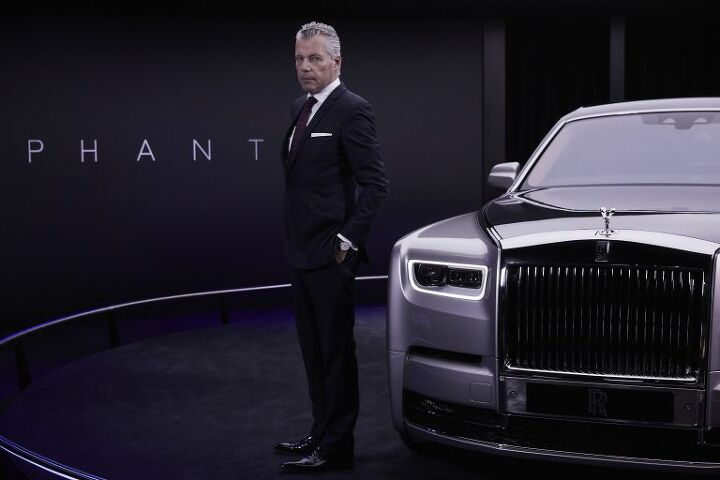

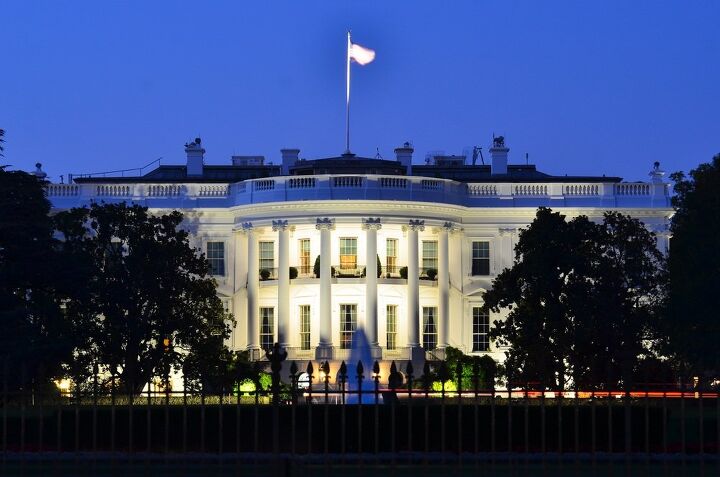


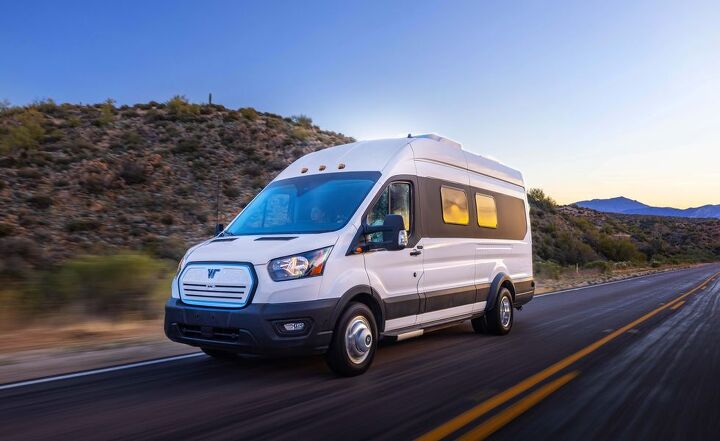

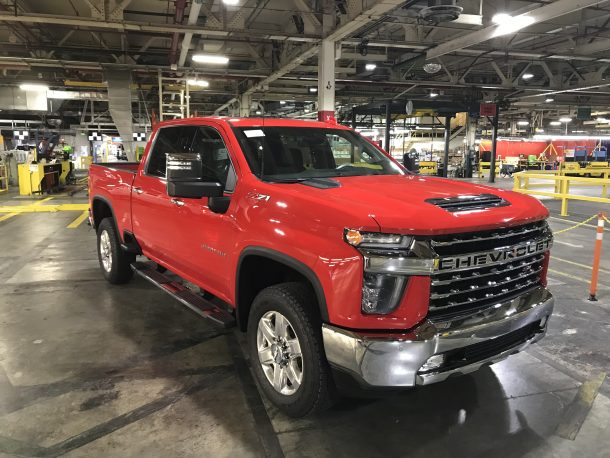
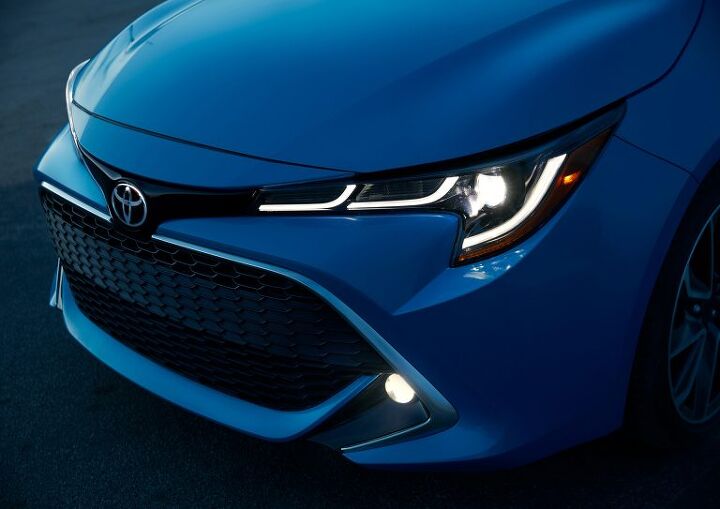
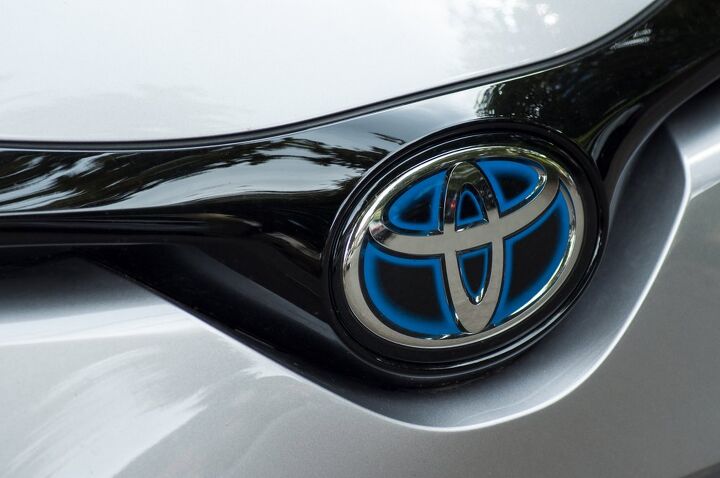

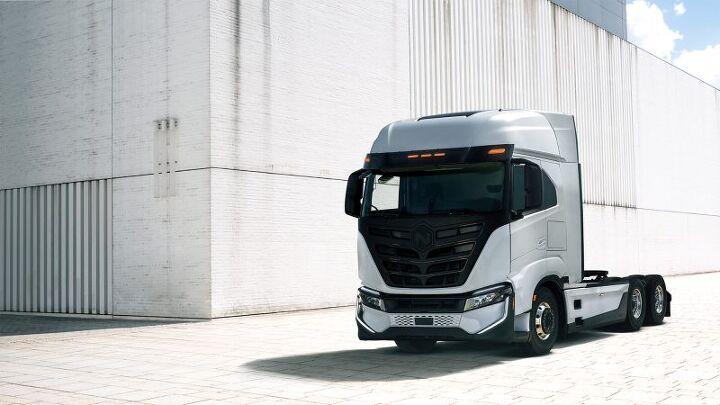
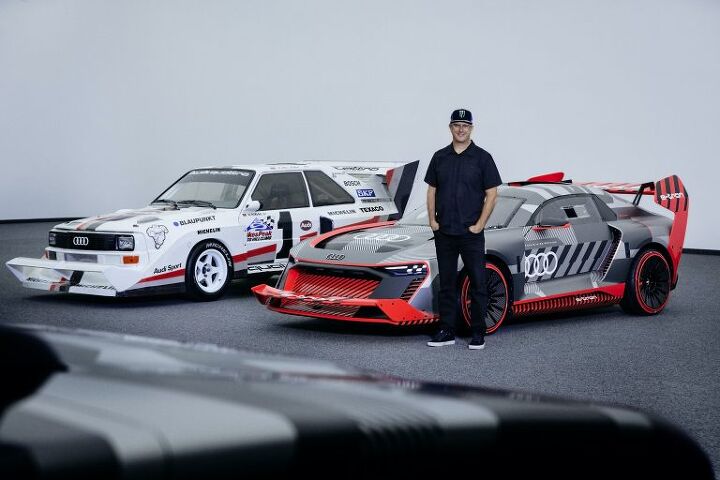
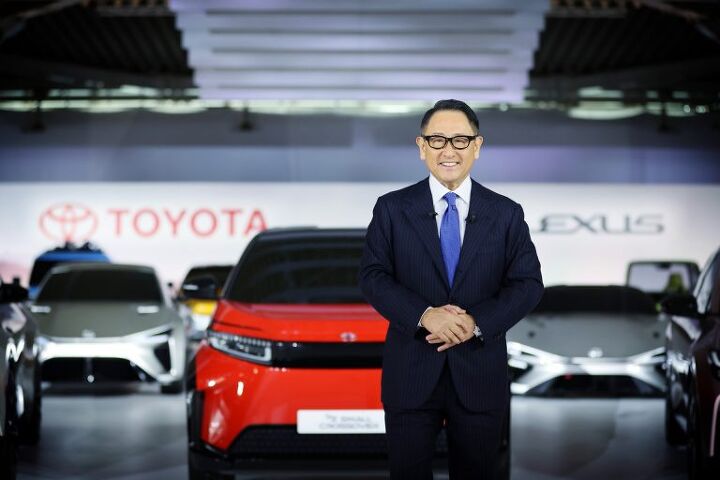
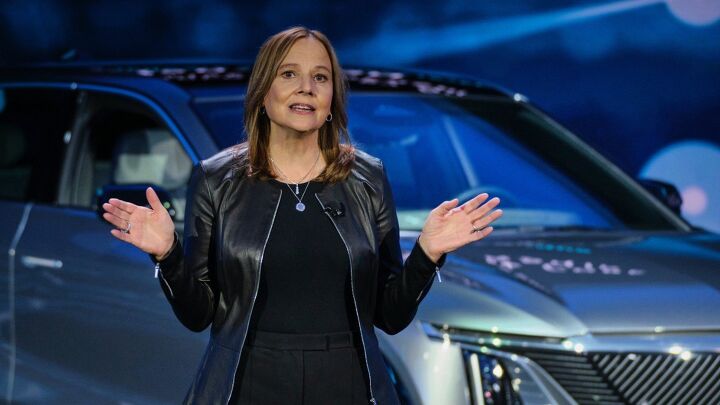


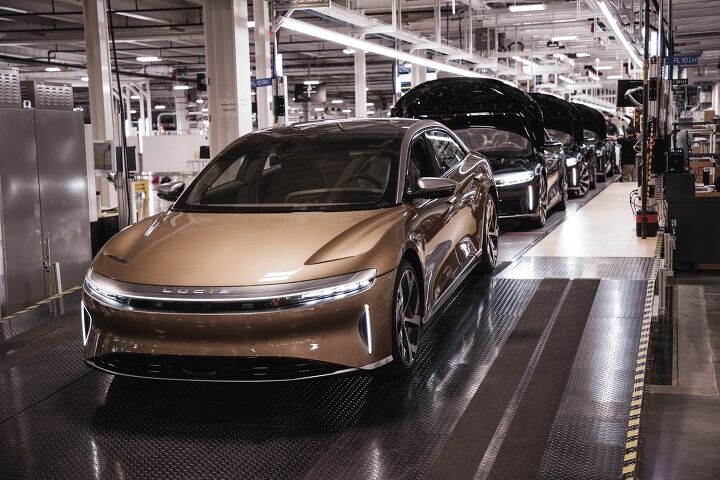

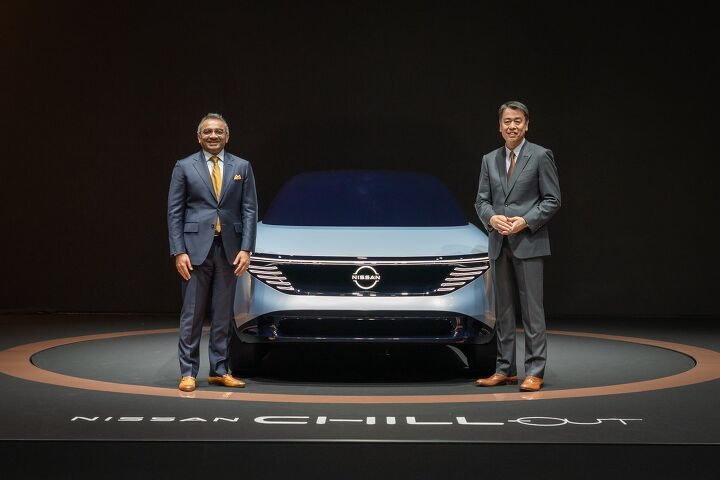



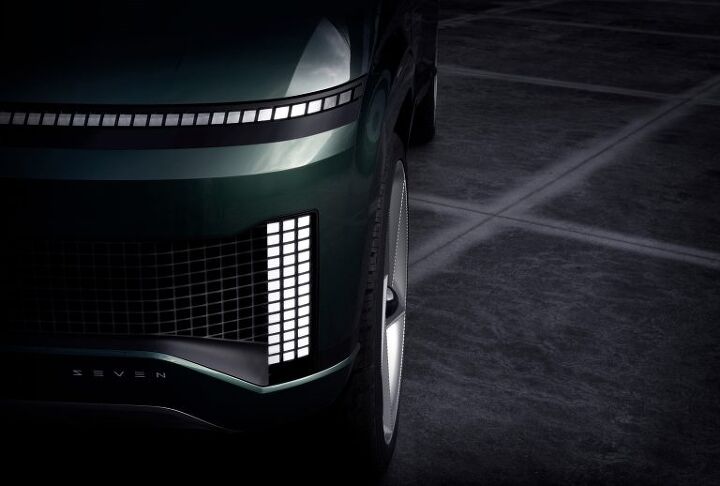
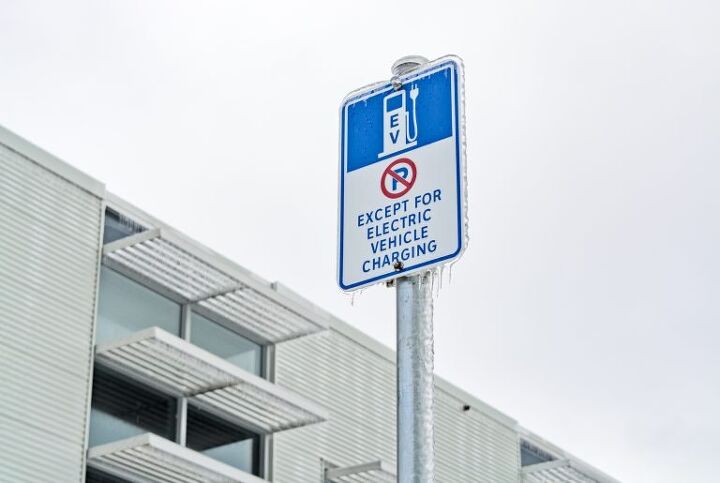
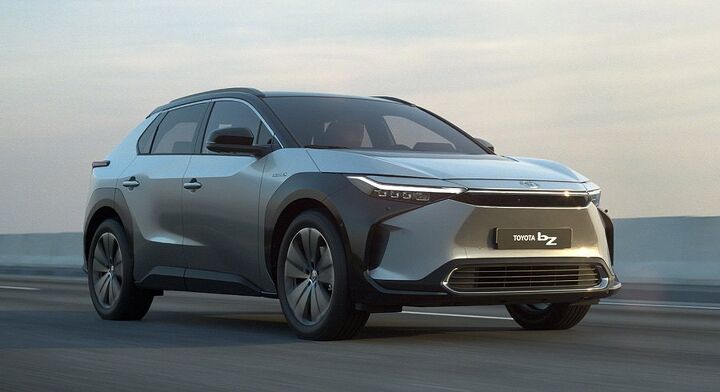


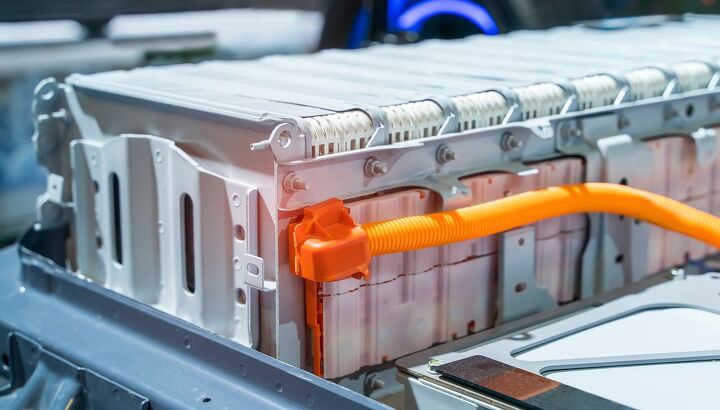
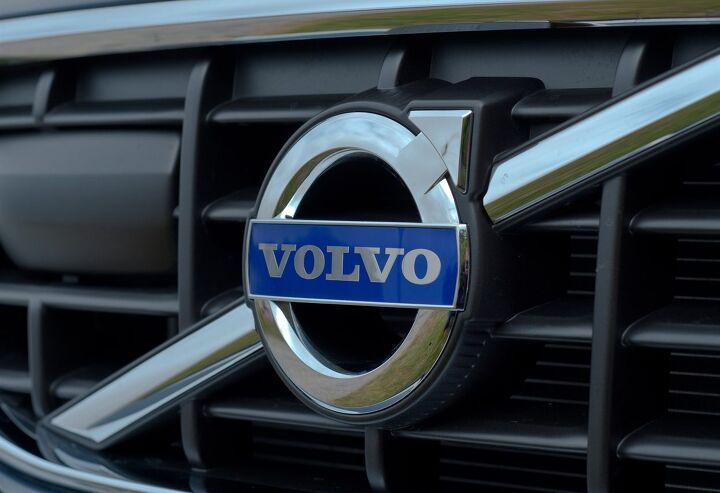

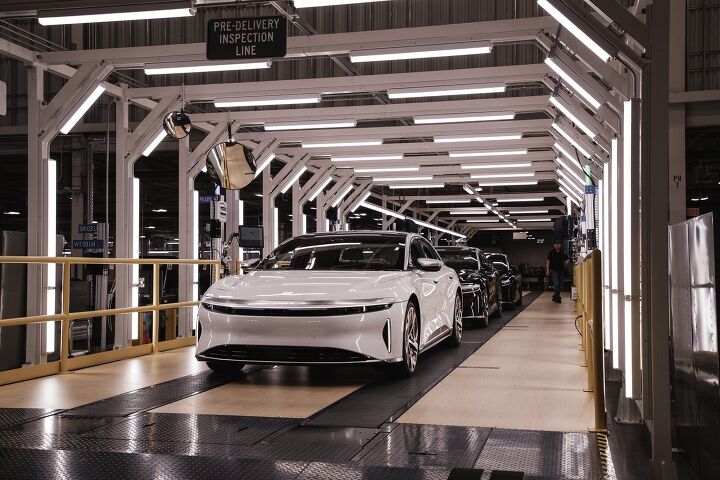
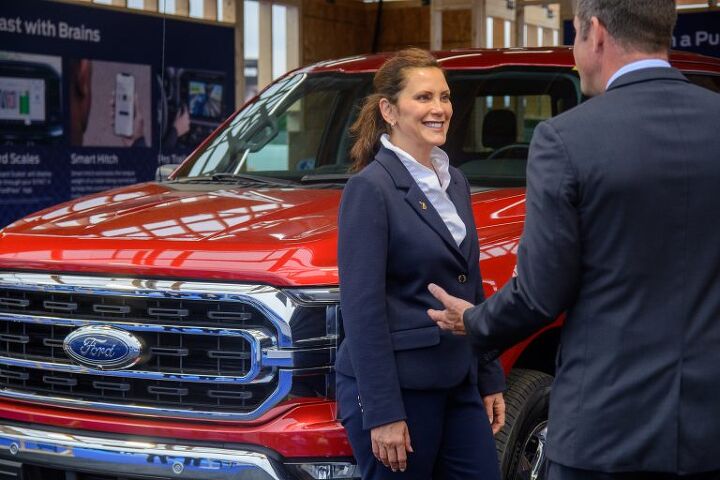
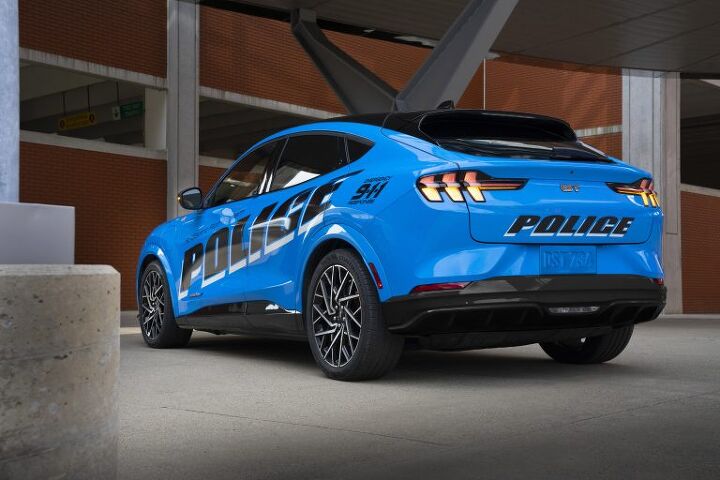
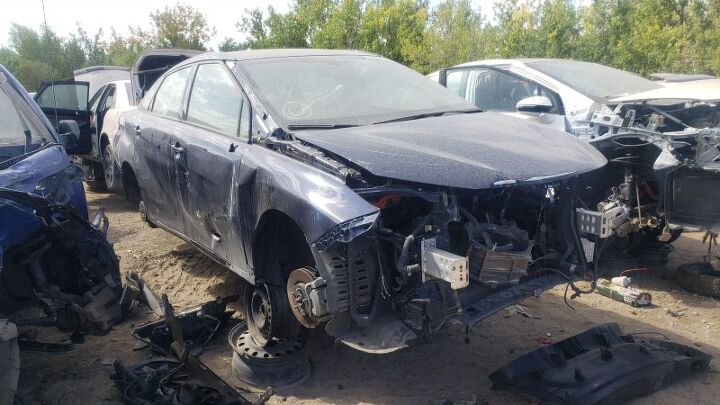

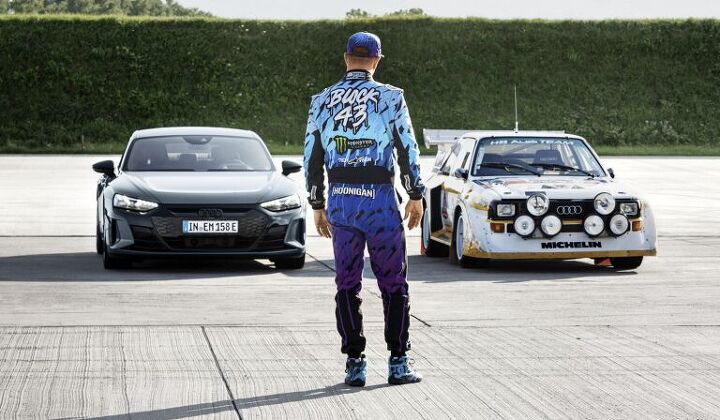
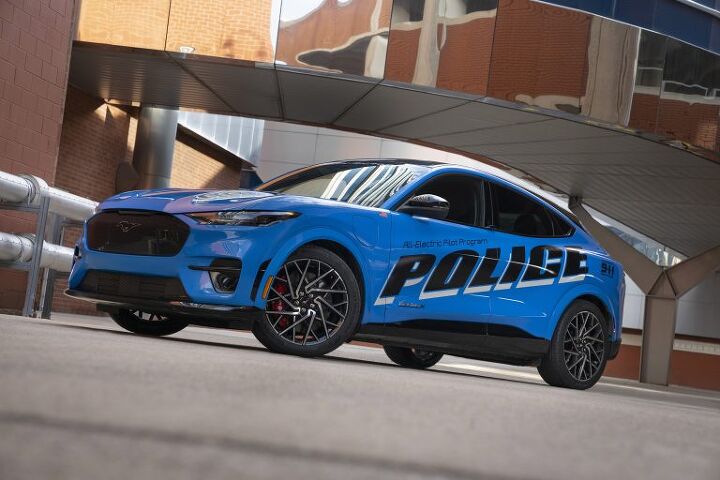
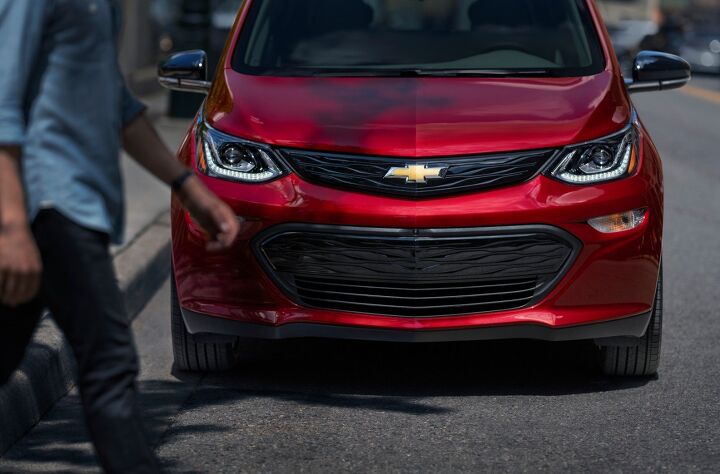
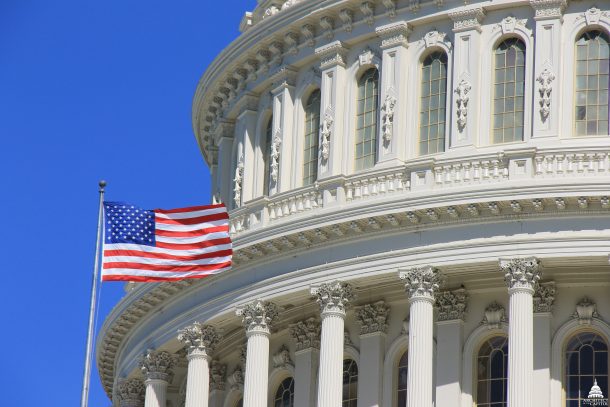

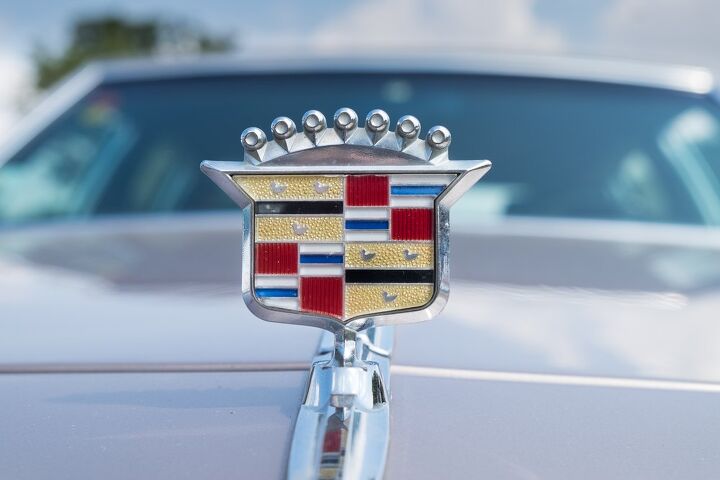


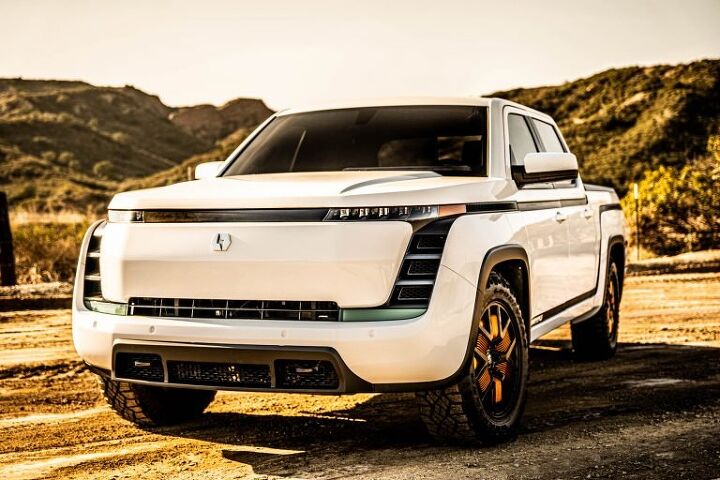
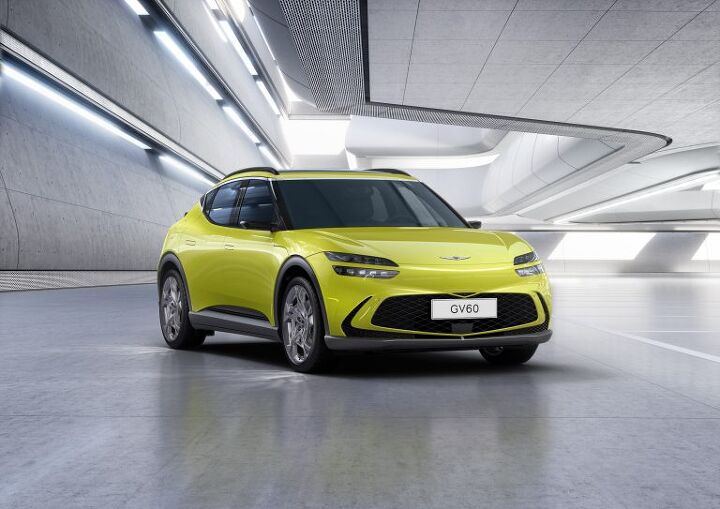
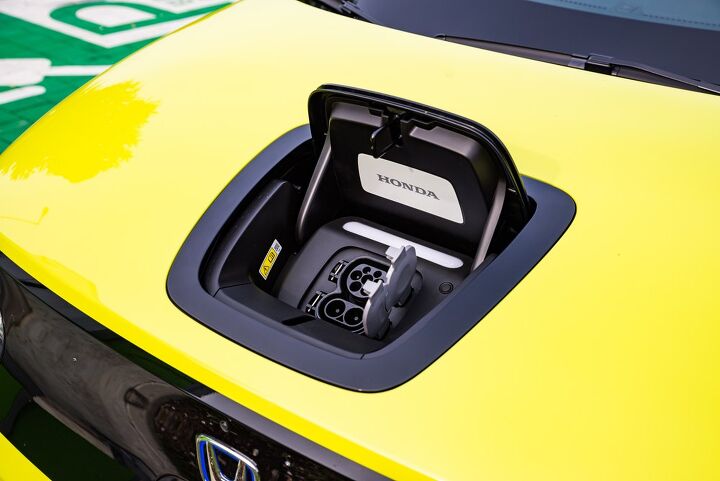
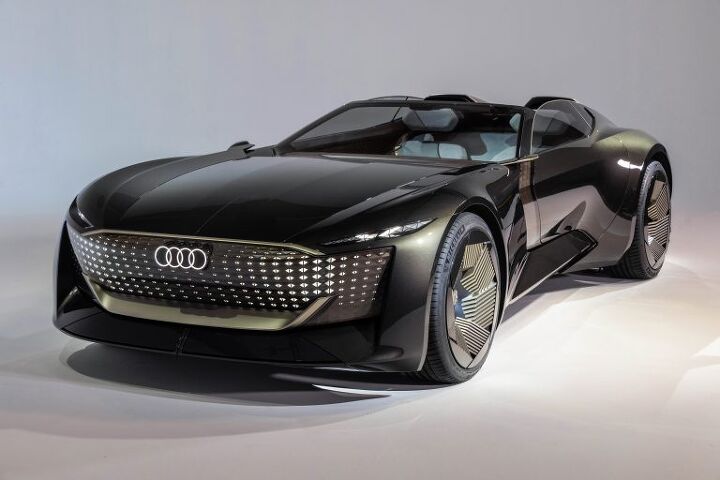




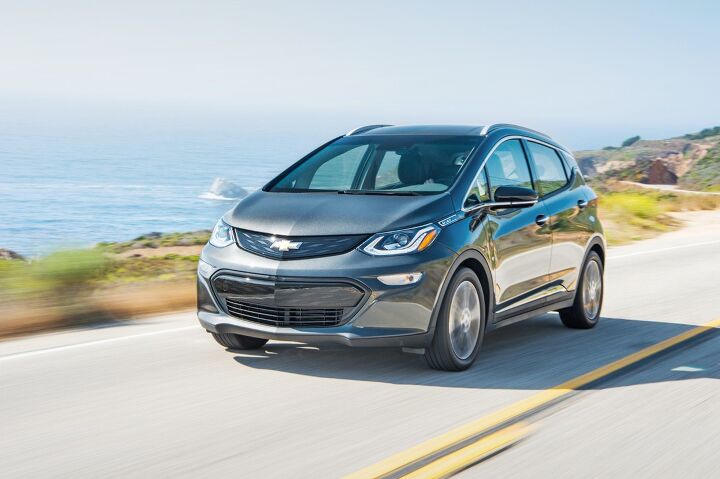
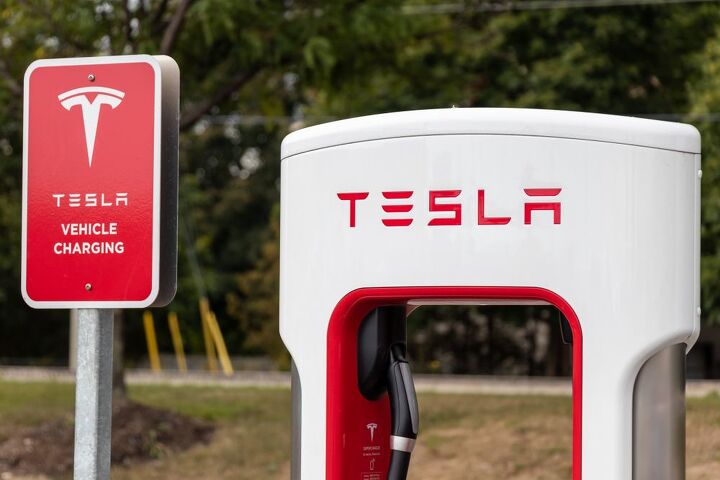












Recent Comments